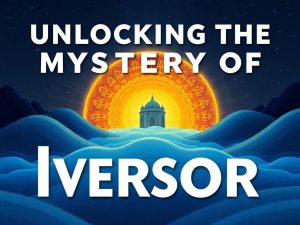In the vast tapestry of Albert Einstein‘s life, there exists a thread that remains largely hidden from public scrutiny: his daughter, Lieserl Einstein. Born into a tumultuous world in which her father would eventually become one of the most recognizable figures in science, Lieserl’s story offers a unique glimpse into the personal struggles and societal expectations surrounding her family. This article delves into the lesser-known aspects of Lieserl Einstein’s life, exploring her birth, her mysterious fate, and the historical context that shaped her existence.
Background Information
Early Life of Albert Einstein
To understand Lieserl Einstein, one must first consider the remarkable yet complex journey of her father, Albert Einstein. Raised in Germany in the late 19th century, Einstein was profoundly influenced by his upbringing in a secular Jewish family. His early fascination with sciences, particularly physics and mathematics, was nurtured by supportive parents, particularly his father, Hermann Einstein, who introduced him to the wonders of the natural world. These formative years laid the groundwork for Einstein’s revolutionary ideas in theoretical physics.
Albert Einstein’s Personal Life
Albert Einstein’s personal life was equally compelling. His relationship with Mileva Marić, a fellow physicist and the first woman to graduate from the Polytechnic Institute of Zurich, was fraught with both love and strife. They married in 1903, but societal pressure and the high expectations placed upon them began to take a toll on their relationship. This backdrop of cultural and social turbulence greatly influenced their partnership, particularly as they navigated the challenges of parenthood.
Lieserl’s Birth
Circumstances Surrounding her Birth
Lieserl Einstein was born on January 27, 1902, in Novi Sad, Serbia, during a precarious time for her parents. Her birth represented not only a personal milestone for Albert and Mileva but also came at a period when societal norms regarding family and motherhood were rigid. The circumstances surrounding her conception—an unplanned pregnancy—added another layer of complexity, given Mileva’s status as an unmarried mother.
Family Reactions and Implications
The reactions of Albert and Mileva to Lieserl’s arrival were mixed. While there was a sense of joy, societal implications weighed heavily upon them. The cultural backlash against unwed mothers left Mileva vulnerable, especially in a time when women had limited rights and autonomy. This tension between personal happiness and societal expectations became a defining theme in Lieserl’s early life.
The Mystery of Lieserl Einstein
The Lost Letters
The correspondence between Albert and Mileva, particularly during Lieserl’s infancy, serves as a vital but scarce resource in piecing together her story. Letters from this period reveal affectionate exchanges and references to their daughter, but the lack of detailed information in these letters leaves much to speculation. These letters are critical in understanding how Lieserl fit into the personal narrative of Einstein and Marić, as well as the emotional landscape of their parenting.
Events after Birth
Following Lieserl Einstein‘s birth, her fate remains largely unknown. Some historians speculate that she might have been adopted, while others suggest the possibility of institutionalization, reflecting the harsh realities faced by unwed mothers at the time. Unfortunately, the lack of documentation means much of Lieserl’s life is shrouded in ambiguity, further deepening the mystery surrounding her existence.
Lieserl in Historical Context
Societal Attitudes Towards Unmarried Mothers
The early 20th century was rife with stigma against unmarried mothers. Women in Mileva Marić’s position faced social ostracism and legal limitations that profoundly impacted their lives. In this environment, Lieserl’s story must be viewed through the lens of the cultural and legal challenges her mother faced, highlighting a broader societal narrative that often forced women into silence and obscurity.
Impact of World Events
Moreover, the historical backdrop of World War I and the political dynamics of the time played significant roles in shaping family structures. With escalating conflict and social upheavals, the stability of families like the Einsteins was constantly undermined, influencing personal relationships in profound ways.
Theoretical Perspectives on Lieserl
Perspectives from Historians
Historians have offered various interpretations regarding Lieserl Einstein’s significance. Some view her as a tragic figure whose existence reveals the complexities of familial expectations among prominent individuals, whereas others argue that her story represents the untold struggles of many women during that era. Notable historians such as Walter Isaacson and John Stachel have reflected on the implications of Lieserl’s legacy, emphasizing the importance of acknowledging her existence in the broader narrative of Einstein’s life.
Psychological Perspectives
The existence of Lieserl undoubtedly impacted Albert Einstein psychologically. The emotional burden of a hidden child may have influenced Einstein’s future work and personal relationships, leading to an exploration of parental sentiments and identity. Insights from this perspective shed light on how parental struggle and societal expectations intertwine, particularly in the context of genius and family dynamics.
Lieserl’s Legacy
Lieserl in Popular Culture
Through the years, Lieserl Einstein has also made her mark on popular culture. Books, films, and theatrical productions have drawn on her intriguing story, romanticizing her life as a hidden daughter of one of history’s great minds. These portrayals often blend fact with fiction, creating a narrative that captivates the imagination while prompting discussions about the roles of women in history.
Relevance in Biographical Studies
In biographies detailing the life of Albert Einstein, Lieserl’s story enriches the narrative, providing a lens to view the intersections between scientific achievement, personal loss, and societal expectations. The discussions surrounding Lieserl push us to consider the importance of personal context in understanding the complexities of historical figures, reminding us that even great minds are shaped by their relationships and struggles.
Table: Key Information about Lieserl Einstein
| Aspect | Details |
|---|---|
| Date of Birth | January 27, 1902 |
| Place of Birth | Novi Sad, Serbia |
| Parents | Albert Einstein, Mileva Marić |
| Fate | Adoption theories, possible institutionalization |
| Historical Context | Societal stigma around unmarried mothers; WWI |
| Impact on Albert Einstein | Emotional burden, influences on personal life and work |
Frequently Asked Questions (FAQ)
1. Who was Lieserl Einstein?
Lieserl Einstein was the daughter of renowned physicist Albert Einstein and his first wife Mileva Marić. Born in 1902, her life is shrouded in mystery, and little is known about her fate.
2. What happened to Lieserl Einstein after her birth?
The fate of Lieserl Einstein remains speculative, with theories suggesting she may have been adopted or institutionalized, but there is no conclusive evidence.
3. How did societal attitudes in the early 20th century impact Lieserl’s life?
As an illegitimate child, Lieserl’s existence would have subjected her mother, Mileva Marić, to societal stigma and legal challenges, highlighting the struggles of unmarried mothers during that era.
4. In what ways does Lieserl’s story contribute to our understanding of Albert Einstein?
Lieserl’s story offers insight into Albert Einstein’s personal challenges and the emotional burdens he carried, which influenced not only his personal relationships but also his scientific work.
5. What do historians say about Lieserl Einstein?
Historians provide various interpretations of Lieserl Einstein, with some viewing her as a tragic figure, while others emphasize her role in understanding the complexities of Einstein’s life.
6. Has Lieserl Einstein been depicted in popular culture?
Yes, Lieserl Einstein has been referenced in various books and films, often romanticizing her story and encouraging discussions about the hidden narratives of historical figures.
7. What were the reactions of Albert Einstein and Mileva Marić to Lieserl’s birth?
The reaction to Lieserl’s birth was a mix of joy and societal pressure, as they faced the challenges of being a young, unmarried couple in an unforgiving culture.
8. What can we learn about societal norms from Lieserl’s story?
Lieserl’s narrative sheds light on the challenges faced by women, particularly unwed mothers, and how societal norms can shape personal destinies.
9. What emotional impact did Lieserl have on Albert Einstein?
The emotional burden of having a hidden child likely influenced Albert Einstein’s psychological state, shaping his personal relationships and perspective on family and responsibility.
10. How does Lieserl’s story fit into discussions about family and science?
Lieserl’s story enriches the dialogue surrounding Albert Einstein‘s life, highlighting the intersections between personal struggles, family dynamics, and scientific achievement.
Lieserl Einstein’s life remains largely a mystery, but as we uncover the threads of her existence, we are reminded of the complex realities faced by individuals in history. The story of Lieserl serves as a poignant reminder that behind every great mind, there may be stories untold, waiting to be revealed.




